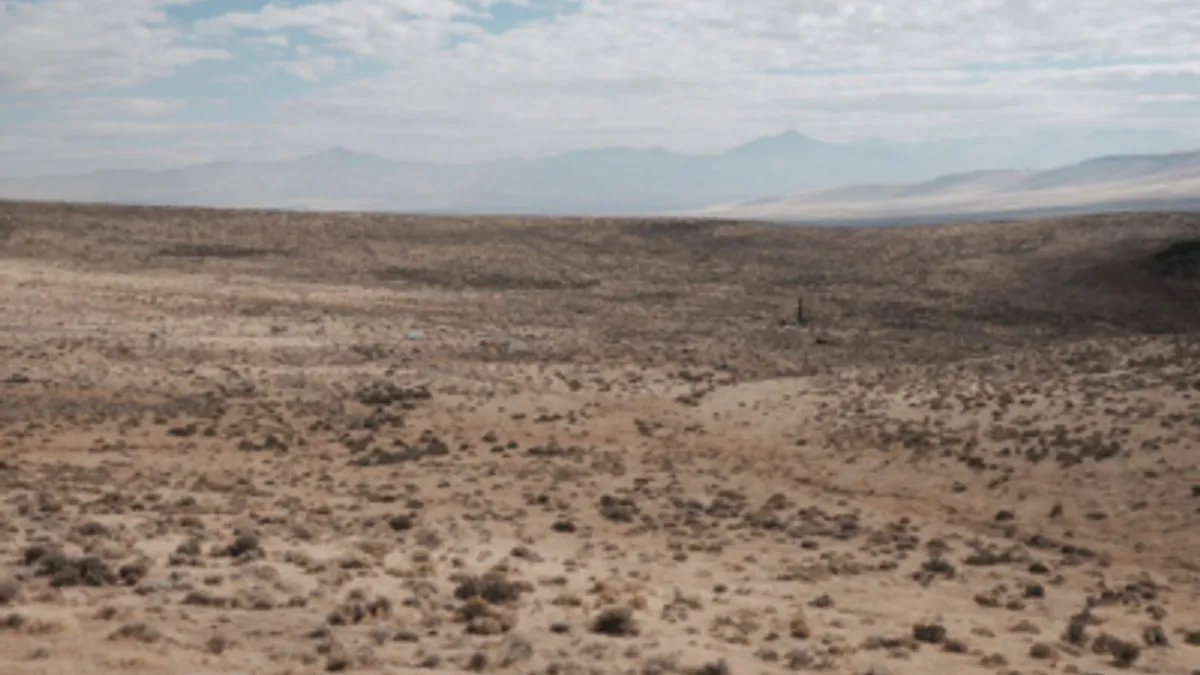Dive Brief:
- Lithium Americas' plans to develop a domestic lithium supply chain took a big step forward this week by securing a $2.26 billion Department of Energy loan to build processing facilities at its upcoming project in Nevada.
- The lithium company is in the midst of constructing the Thacker Pass mine in Humboldt County, Nevada. The project aims to produce 40,000 tons of battery grade lithium carbonate per year when the first phase of production begins in 2027, powering up to 800,000 electric vehicles.
- The mine project, which the Energy Department touts as the largest known lithium reserve on the continent, is seen by the Biden administration as a critical link in its bid to create an end-to-end lithium supply chain that can power the country's burgeoning EV industry.
Dive Insight:
Lithium Americas has been working to develop the mine and corresponding facilities for at least six years, with initial construction starting early last year.
In January 2023, General Motors invested $650 million in the company and signed a supply deal to use lithium from the project in the automaker's Ultium battery cells. Together with the Energy Department's loan, the two funding sources provide "the vast majority" of capital needed for the project's first phase of production, Lithium Americas President and CEO Jonathan Evans said in a statement.
GM has exclusive purchasing rights to all lithium production in phase one of the project for up to 15 years, and has the right of first offer for phase two.
"The United States has an incredible opportunity to lead the next chapter of global electrification in a way that both strengthens our battery supply chains and ensures that the economic benefits are directed toward American workers, companies and communities," Evans said.
Lithium Americas is now in the midst of engineering, procurement and execution planning for the Thacker Pass project, with plans to start greater construction in the second half of the year. Total capital costs for phase one construction are $2.93 billion, according to the company.
The first project phase is expected to create 1,800 direct jobs during the three-year construction period, as well as 360 operational jobs over the 40-year lifespan of the mine.
The Energy Department has made lithium and battery supply chain projects a priority in its clean energy and EV funding strategy. Loans span from lithium extraction and processing through to battery production and recycling, helping to build an end-to-end ecosystem.
In June 2023, Ford and battery maker SK On scored a $9.2 billion loan to build three battery manufacturing plants.
Six months prior, it gave a $700 million loan to Australia-based lithium company Ioneer, which is building a lithium processing site in Esmeralda County, Nevada. The company has plans to supply auto and battery makers including Ford and a Toyota and Panasonic joint venture.
And in March 2023, the department announced a $375 million loan to lithium battery recycler Li-Cycle for a metal recovery facility in Rochester, New York.
Correction: This story has been updated to reflect Ioneer's intended lithium customers.















